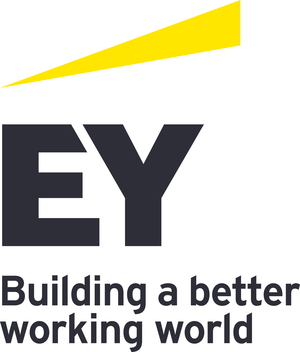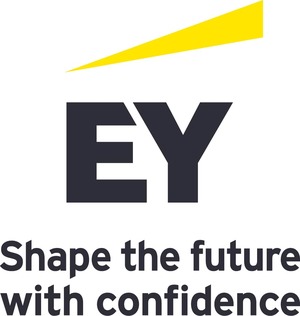LONDON, May 12, 2014 /PRNewswire/ --
- 80% of CFOs and CHROs say their relationship has become more collaborative over the past three years
- Where the relationship is significantly more collaborative:
- 41% had greater than 10% EBITDA growth in the last year, compared to only 14% of other companies
- 43% saw a significant improvement in workforce productivity in the last year, compared to only 10% of other companies.
A global survey of CFOs and chief human resource officers (CHROs) by professional services organization EY finds that a strong relationship between the CFO and the CHRO is linked with superior business performance. Companies where the relationship has become more collaborative over the past three years report higher EBITDA (earnings before income tax, depreciation and amortization) growth and stronger improvement across a range of human capital metrics, including employee engagement and productivity.
The second instalment of Partnering for performance, a global survey of 550 CFOs and CHROs, finds that 41% of these high-performing companies experienced EBITDA growth of greater than 10% versus only 14% of non-high performers. In addition to faster EBITDA growth, 44% of high-performers have also seen a significant improvement in employee engagement, versus 9% of others. Forty-three percent have seen a marked increase in workforce productivity versus 10% of others.
With the gap between finance and HR narrowing, the EY study identifies four key factors that have driven closer collaboration between these two leadership functions over the past three years:
Talent is scarce and labor costs are rising
Companies need a better understanding of the relationship between cost and performance, especially as organizations in both mature and rapid-growth markets are struggling to identify, secure and develop top talent. This challenge, combined with fast-rising labor costs, leads to costly rates of attrition that can threaten the viability of strategic investments. It's imperative that companies take a smarter approach to human capital cost management.
HR is more important within the corporate hierarchy
Because HR has traditionally been a support function, it has often been too far removed from the strategic decision-making of the business. This is changing as HR rises in the corporate hierarchy, and companies recognize the need for closer alignment between their corporate strategy and human capital strategy.
Companies need to quickly change direction and develop new products and services
The rapidly shifting global business environment requires every company to continually adapt its strategy and introduce new products and services to remain competitive. By involving both the CFO and CHRO in the strategic decision-making process, businesses can ensure that both the financial and people impacts of decisions are addressed.
More organizations are altering their business models
Companies continue to transform key business functions, including finance, HR and IT. The process of seeking out greater efficiencies, standardization and scale in order to improve service delivery and increase profitability is ongoing. Firms are navigating these highly complex issues while weighing the opposing forces of onshoring and offshoring and adapting current models to capture new geographic growth opportunities. To accomplish this, they will need to move toward a multifunctional global business services model. Transformation on this scale has significant finance and HR implications.
Dina Pyron, Global Human Capital Leader at EY, says:
"Each day, companies are grappling with increasingly complex human capital decisions that have a fundamental impact on the strategic objectives of their businesses. A company's workforce inevitably drives growth and performance and, in most companies, people are also the single largest expense. Typically, CFOs have tended to view human capital primarily as a cost, while CHROs have viewed it primarily as an asset that requires investment."
Jay Nibbe, Chair, Global Accounts Committee at EY, says:
"To really maximize employee engagement and improve workforce productivity, while keeping pace with the ever-changing dynamics of the global labor force, the CFO and the CHRO need to find ways to increase collaboration effectively and efficiently. This collaboration will empower CFOs to allocate the necessary resources required to deliver the company's strategy, and the CHRO can ensure the alignment of 'right people, right place, at the right time'."
At high-performing companies, defined as those with greater than 10% EBITDA growth in the last year and significant improvements in employee productivity and engagement in the last three years, EY finds there are four elements to this relationship that sets them apart:
Organizational structure and operating model:
- On average, high performers spend 50% more time on the CFO-CHRO relationship
- 62% of high performers are peers versus 42% of others
- They report better integration between finance and HR – across processes, teams, technologies and systems
Strategic planning and decision-making:
- At high-performing companies, the CFO makes a bigger contribution to strategic workforce planning, and there is greater collaboration between finance and HR on this activity
- 58% of high-performers rate the collaboration on the business strategy and development as excellent versus 22% of others
- 37% of high-performers say the relationship is primarily forward looking, rather than backward facing, versus 19% of others
Use of analytics:
- High-performers use analytics to understand the workforce better
- There is great evidence of data-led decision-making in HR
Measurement:
- High-performing companies have a more rigorous approach to identifying and tracking key HR metrics
- 49% of high-performers consider their company to be excellent at using data analytics to improve HR performance, versus 16% of others
- 51% of high-performers say that the CFO in their organization is heavily involved in identifying and tracking HR metrics, versus 10% of others
To view the full report, please visit: www.ey.com/cfoandhr
About EY
EY is a global leader in assurance, tax, transaction and advisory services. The insights and quality services we deliver help build trust and confidence in the capital markets and in economies the world over. We develop outstanding leaders who team to deliver on our promises to all of our stakeholders. In so doing, we play a critical role in building a better working world for our people, for our clients and for our communities.
EY refers to the global organization, and may refer to one or more, of the member firms of Ernst & Young Global Limited, each of which is a separate legal entity. Ernst & Young Global Limited, a UK company limited by guarantee, does not provide services to clients. Ernst & Young LLP is a member firm serving clients in the US. For more information about our organization, please visit ey.com.
This news release has been issued by EYGM Limited, a member of the global EY organization that also does not provide any services to clients.
Logo - http://photos.prnewswire.com/prnh/20130701/NY40565LOGO-b
SOURCE EY
WANT YOUR COMPANY'S NEWS FEATURED ON PRNEWSWIRE.COM?
Newsrooms &
Influencers
Digital Media
Outlets
Journalists
Opted In





Share this article